MercoPress. South Atlantic News Agency
Tag: US Federal Reserve
-
Thursday, October 30th 2025 - 11:38 UTC
Fed lowers benchmark interest rate
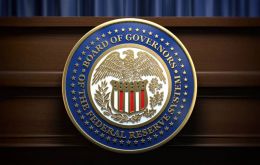
Amid a softer labor market, the United States' Federal Reserve (Fed) voted Wednesday to cut its benchmark interest rate by 0.25 basis points, moving the target range to 3.75%–4%. This marks the lowest level in three years and continues the easing cycle dating back to last month.
-
Thursday, May 4th 2023 - 10:10 UTC
US Fed raises interest rate yet again

The US Federal Reserve Wednesday upped its benchmark interest rate by a quarter point to between 5% and 5.25%, its highest level in 16 years, which further tightened credit for businesses and consumers, it was announced.
-
Wednesday, July 14th 2021 - 08:59 UTC
US budget finances improving as labor market recovers and tax payments advanced two months
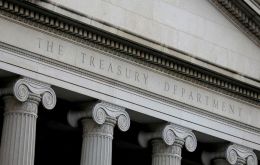
The United States government recorded a budget deficit of 174 billion dollars in June, which is approximately a fifth of the 864 billion dollars the same month a year ago. Recovery of the labor and jobs markets, together with an advanced deadline to pay taxes this year helped to achieve the positive tendency.
-
Friday, April 10th 2020 - 14:50 UTC
US Fed and Bank of England ramp up emergency responses to the escalating recession in unchartered waters
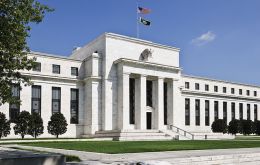
The U.S. Federal Reserve and the Bank of England ramped up their emergency responses to the world's escalating coronavirus recession on Thursday as they pushed deeper into territory once considered fraught with risk for central bankers.
-
Saturday, March 28th 2020 - 08:26 UTC
Brazil's central bank preparing a “financial bazooka” to prevent recession becoming depression
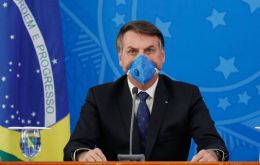
Brazil’s central bank could soon be forced to fire up the money printing presses if the coronavirus-fueled recession facing Latin America’s largest economy is as devastating as some economists fear.
-
Wednesday, March 25th 2020 - 08:37 UTC
Announced US stimulus plan helps a slight recovery of oil prices

Oil rose over 3% on Tuesday after the U.S. Federal Reserve said it would take steps to bolster the economy and on growing hopes the United States will soon reach a deal on a US$ 2 trillion coronavirus economic package.
-
Friday, March 6th 2020 - 08:48 UTC
Latin American currencies weakened on Thursday's; Brazil Real slides to a record low

Latin American stocks and currencies weakened on Thursday, with Brazil's real slipping to yet another record low, as the rapid spread of the coronavirus sapped risk appetite and investors worried about the scale of the economic fallout.
-
Saturday, August 3rd 2019 - 07:30 UTC
China bows to fight back Trump's tariffs: “if they want to fight, then we will fight”

China on Friday vowed to fight back against US President Donald Trump's abrupt decision to slap 10% tariffs on the remaining US$300 billion in Chinese imports, a move that ended a month-long trade truce.
-
Wednesday, January 30th 2019 - 08:54 UTC
Latin American markets outperform world stocks struggling over US/China trade talks

Latin American stocks rose on Tuesday, outperforming world stocks that struggled to hold gains ahead of keenly awaited U.S.-Sino trade talks, earnings of top technology companies and an impending U.S. Federal Reserve decision on interest rates.
-
Wednesday, December 19th 2018 - 09:12 UTC
Latin American markets and currencies cautious ahead of Fed's two-day meeting
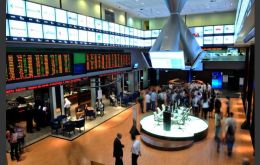
Latin American currencies failed to gain against a weak dollar on Tuesday, as cautious investors pared exposure ahead of the end of the U.S. Federal Reserve's two-day meeting on Wednesday, while Latin American stocks ticked up in line with their U.S. peers.
